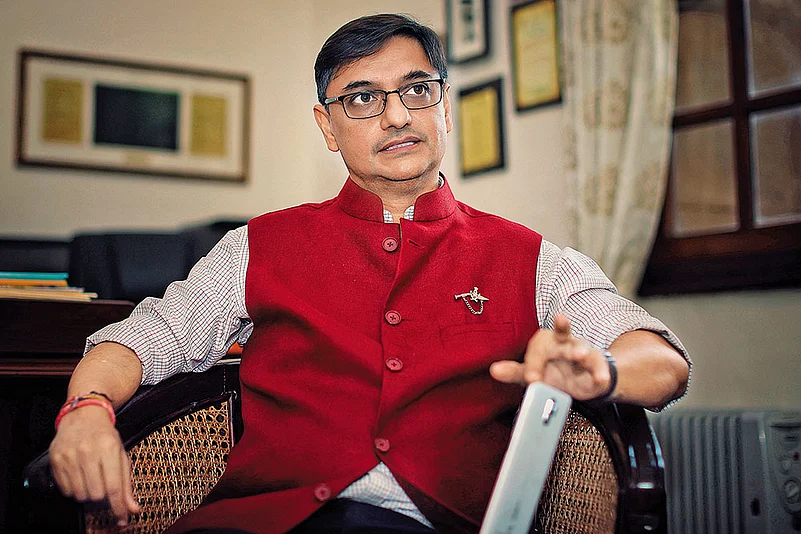What should we do to make India a nation that innovates with new products and embraces new-age industries?
Economics and politics are ultimately downstream of culture. When a society has a culture of risk-taking, aspiration and chasing excellence, the economics and politics of that society will begin to reflect certain kinds of behaviours.
It is sometimes easier to understand our own society by drawing analogies from another. Let’s look at the European Renaissance. After the decline of the Roman Empire, Europe remained a backwater for about a thousand years. Then, suddenly, in the 15th and 16th centuries, a large number of extraordinary innovators emerged—[Leonardo] da Vinci, Michelangelo, Galileo, Vasco da Gama and Columbus. Even Shakespeare wrote his plays during this time. Within just a few generations, you witness a surge of risk-taking across diverse fields. This shift in culture led to five hundred years of European dominance.
The same phenomenon has happened in Bengal. For a century, from the mid-19th century to the mid-20th century, Bengal produced a large number of remarkable individuals like Swami Vivekananda, Sri Aurobindo, Netaji Subhas Bose, AJC Bose, Mohini Mohan Chakravarti and Rabindranath Tagore. These individuals excelled in diverse fields.
Then from the late 1960s Bengali society decided that entrepreneurial risk-taking was not aspirational. The point is that a society’s economic, artistic and scientific success is ultimately derived from a culture of risk-taking.
Does the onus also fall on the policymakers?
The policies of any society are ultimately a reflection of what that society asks for, especially in a democracy. If a society demands freebies, it will get freebies; if it demands infrastructure, it will get infrastructure. We need to be careful about what we demand because it is likely that we will get it.
A significant segment in India seeks freebies and they get it.
Not every form of government support is a freebie. The government has a role providing a safety net—for example, health insurance, support during natural calamities and so on. However, freebies, as I define them, are those forms of support that do not necessarily provide a safety net or a pathway towards opportunities.
If a society demands freebies, it will get freebies; We need to be careful about what we demand because it is likely we will get it
But don’t you think democracy will always favour the politics of freebies?
There are many examples in history of democracies voting for tough decisions. For instance, the British repeatedly backed scaling back on socialist policies under [Margaret] Thatcher and similar shifts are happening in Argentina right now. The introduction of GST, the cleaning of banks using insolvency and the inflation-targeting framework are all tough, often deflationary, policies that Indians endorsed.
Many Indians are still attracted towards government jobs. How do you relate this to the growth of the economy?
My optimism stems from the fact that, while a section of the youth may be stuck in traditional paths like UPSC [Union Public Service Commission] or public sector, many are taking extraordinary risks. For the first time, we're seeing Indians pursuing sports as a vocation, the emergence of a large number of start-ups and individuals entering completely new professions.
While some might argue that this risk-taking behaviour is a result of growth, I would argue the opposite: that growth is a result of risk-taking. If policies and cultural attitudes shift back to old-style, low-risk behaviour, it would slow down growth.
What measures can governments take to break such cultural barriers?
The first step is to create a general environment that supports risk-taking and the pursuit of excellence, but sometimes the government itself needs to set an example. Building a new Parliament building was long a practical necessity, but somehow, we were paralysed by the idea that we could not violate Lutyens' vision.
If we just talk about the fetish for government jobs, the argument is that the private sector is not able to match the perks of a government job.
I am not saying that we do not need a bureaucracy. Every society needs one. What is different about our society is that we place our bureaucracy on a pedestal that almost no other successful society does. In most other societies, a government job is just like any other job—some people want to do it, some people do not.
I would argue that it is a circular problem because it feeds on itself. The original causation is the worship of “stable” jobs where incumbents cannot be removed for non-performance. A successful society that is willing to embark on ventures like Columbus or da Vinci reflects a different attitude. The good news is that some people are finally embracing risk-taking.
So, you suggest this issue has to be resolved from the ground?
Yes, it has to come up from the population. While top-down leadership can guide, the real change must be absorbed by the people and come from the bottom up.












